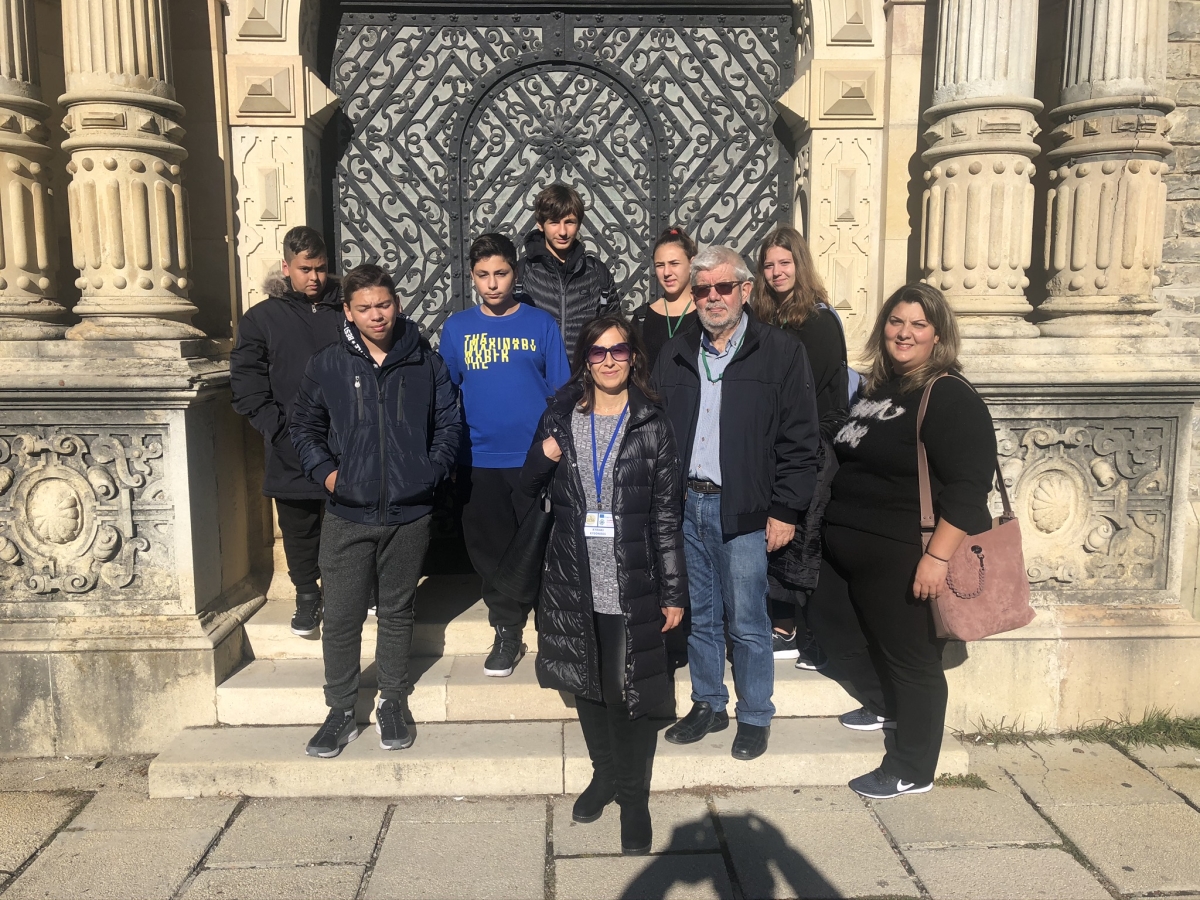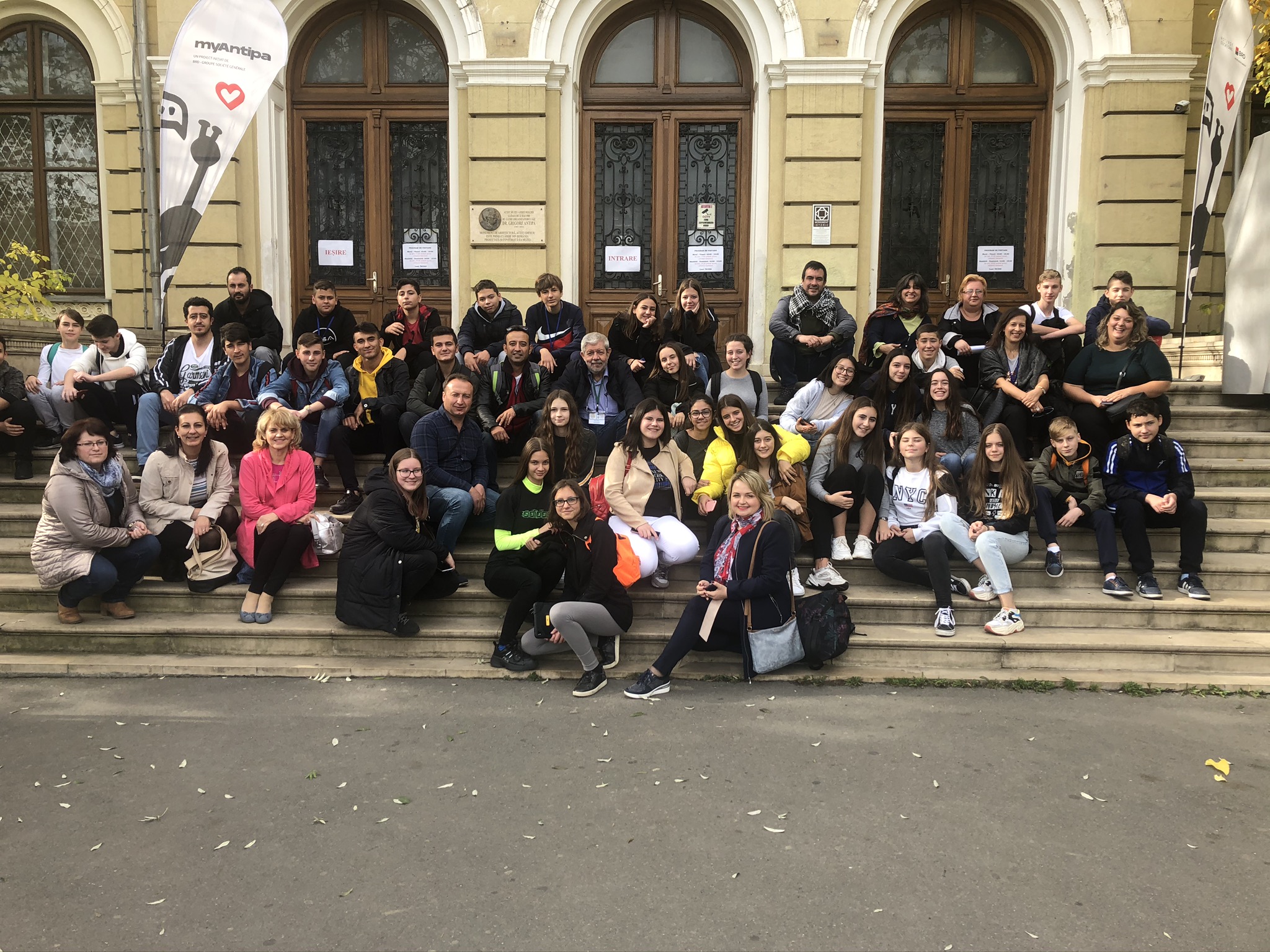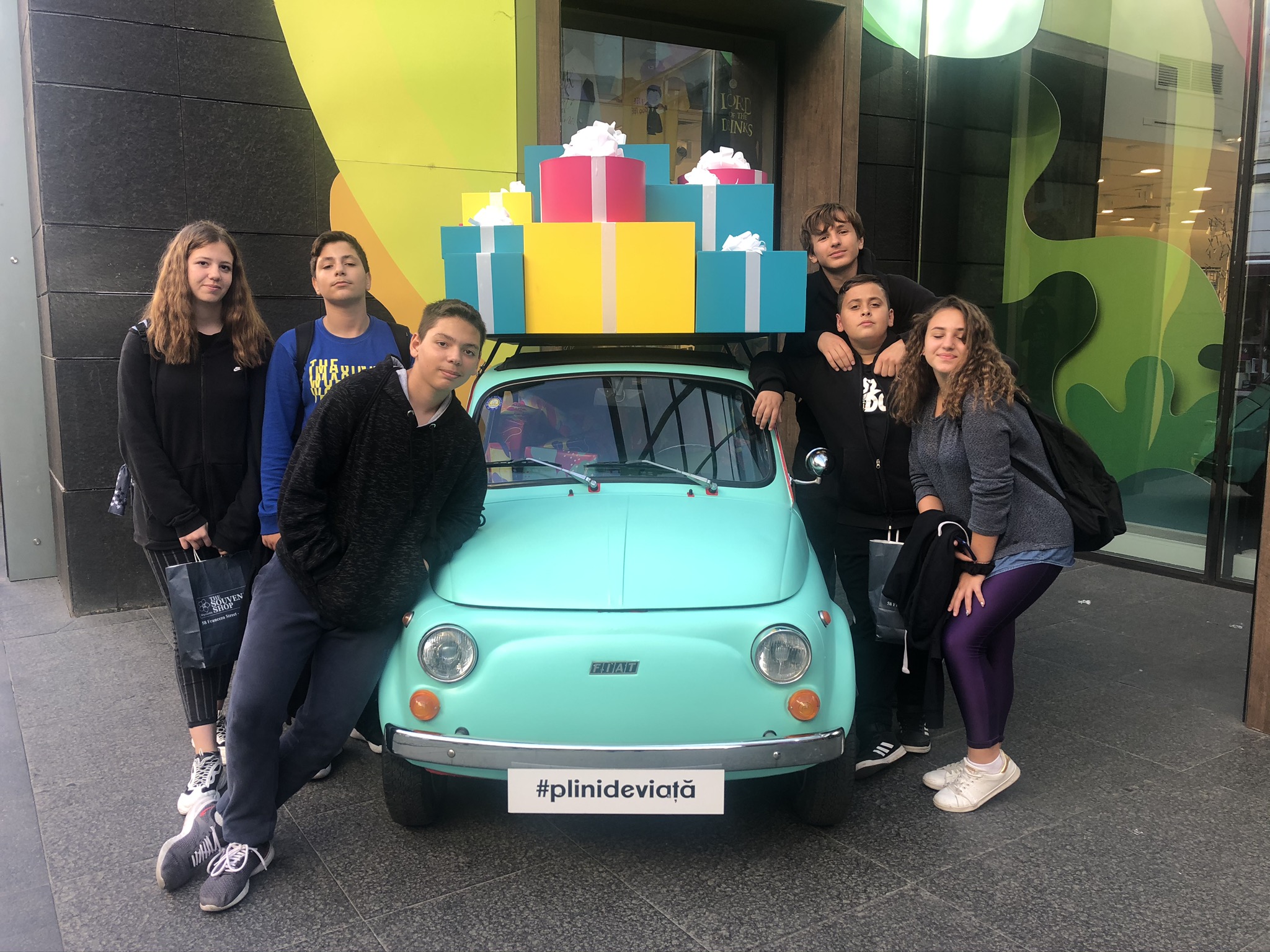Students and teachers of the 11th Heraklion High School moved to Romania, at Skoala Zimnaziala Nr3 in the town of Zimnicea, under the European Erasmus + program entitled Little steps make a big difference. Together we care for our home. The meeting was attended by 6 students and 3 teachers from each school in the partner countries.
At the inaugural welcome party, young students were introduced to the country, the city and the school, as well as traditional Romanian dances. At the school that hosted us, our students had the opportunity to attend a variety of activities: In the school yard they played introductory games and were divided into international groups and then collaborated in the IT lab and worked on the e-twinning educational platform. In addition, teams from each country prepared a presentation on their progress in the program.
Romanian school teacher Mihaela Tănăsescu, in collaboration with biology teachers, taught a lesson on healthy eating and how pupils can adopt healthy eating habits. The lesson ended with outdoor activities and sports at the Dunărica school campground on the Danube.
However, the lab that really excelled the students was watching the production line at the InterAgro biscuit factory as well as the kitchen workshop to make healthy snacks. The presentation started with eight top tips on proper nutrition, and then more details on food were provided to help students understand their recommendation. Activity sheets followed, students filled out their own nutrition charts and discussed examples of a day's menu. These workshops were conducted by students and aimed at students in order to cultivate their creativity and self-esteem and to produce better and more immediate results.
All students also shared their ideas on the topic of "Healthy Lifestyle" and presented their own ideas for healthy eating and healthy meals. All ideas and material gathered from the student partners are available on the Twinspace online project platform, as well as representative videos and photos of mobility in Romania are posted on our school website.
Students, in multicultural groups, discussed, agreed and committed to how to measure changes in their diet for the next two months. School authorities and teacher representatives attended these workshops to help implement these ideas in their schools.

Coordinator meetings took place after students' workshops to discuss and evaluate the project, receive feedback from questionnaires and interviews, and prepare for the next step in successful project implementation. A meeting was held with local authorities to discuss the project itself, as well as education issues in the host country.
During the meeting we also had a rich cultural program and excursions that included our visit to the Parliament Building, a Romanian architectural ornament, which is not only a monument, an attraction, but is also used by Parliament as a place for many and varied of events. Our tour continued at the Grigore Antipa Museum of Natural History in Bucharest, at Pele's Castle, one of the most beautiful Balkan magical fairytale palaces, and at the renowned and imposing Tower of Count Dracula at Bran, at the Cathedral of the Cathedrals and at the Catholics. Village Museum where authentic houses from all parts of Romania are located in Herastrau Park, in the Romanian National Park, by the lake!

Following the meeting in Romania, partner schools will work with all students in their schools to implement the Food Care program for the next two months.
The workshops attended by students on healthy eating - as part of such a broad thematic theme on 'Healthy living' in line with the 17 UN goals. for Sustainable Development, gave young people the opportunity to consolidate in their thinking the link between a healthy environment and a healthy life. Combine the fact that it is good for us is good for the environment and that an environmentally sustainable diet is also a healthy diet.
We met with school authorities and principals, gave a voice and discussed the importance of local organic products and how we, as members of ecological groups, could help schools improve.

 Except where otherwise noted, content on this site is licensed under a Creative Commons Attribution 4.0 International license. Website by Miro Alex. Powered by Joomla CMS.
Except where otherwise noted, content on this site is licensed under a Creative Commons Attribution 4.0 International license. Website by Miro Alex. Powered by Joomla CMS.